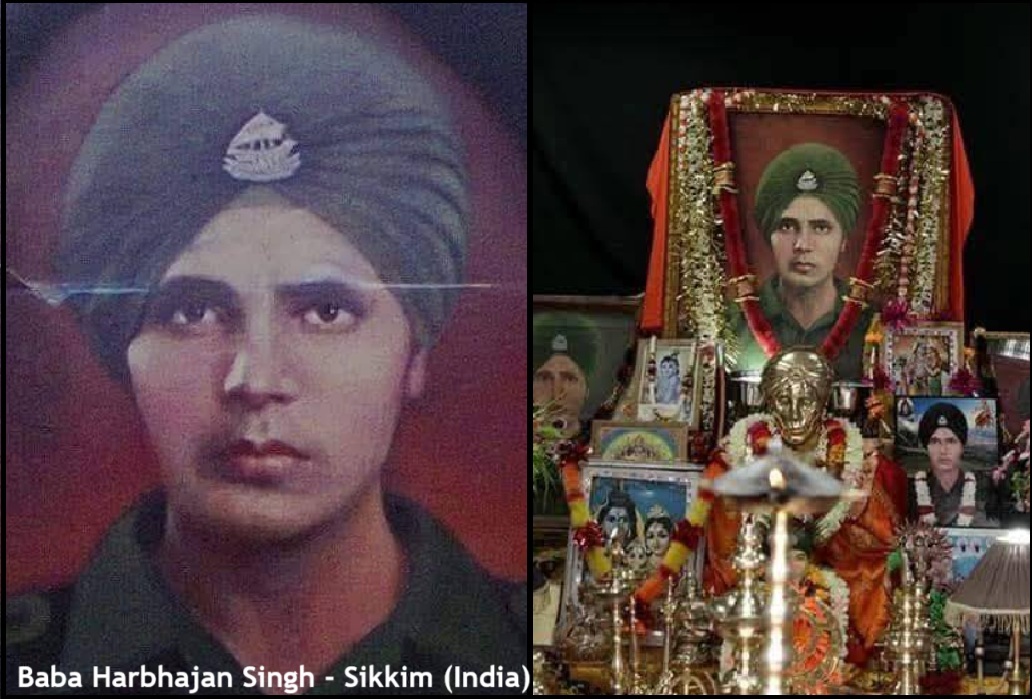
On his 79th birthday, we remember the legendary Baba Harbhajan Singh, a soldier who continues to serve even after death. Born in 1946, Baba Harbhajan Singh, often called the “Saint of Nathula,” is a revered figure among both the Indian and Chinese armies at the Nathula border in East Sikkim.
Despite his tragic death in 1968 at the age of 22 while on duty, his spirit is believed to be a vigilant guardian of the border.
This respect is so profound that during official flag meetings, the Chinese army sets aside a chair specifically for him, a testament to his enduring service. Soldiers credit Baba with providing advance warnings of potential attacks, often days before they occur, continuing his watch over the international boundary.
At every flag meeting between India and China, the Chinese military places a chair for him, acknowledging his ghostly presence and eternal duty.
A shrine was built in his honor with three rooms: an office, a storeroom, and a living area. His personal effects—including his uniform, bed, and shoes—are maintained with care.
Each morning, his room is cleaned and tidied, yet soldiers often find his bed disheveled or his shoes muddy, as if he has just returned from a patrol. He is officially still on the army’s payroll, receiving a Major’s salary and two months of annual leave. Every year on September 11, his belongings are sent to his village. A train berth is reserved for him from New Jalpaiguri, remaining empty for the entire journey and accompanied by a team of soldiers.
The army remains on high alert during his “annual leave,” maintaining the same level of discipline and respect as if he were physically present.
Some soldiers never truly leave their post, and the legend of Baba Harbhajan Singh serves as a powerful reminder of a soldier’s undying commitment to their nation’s borders.





